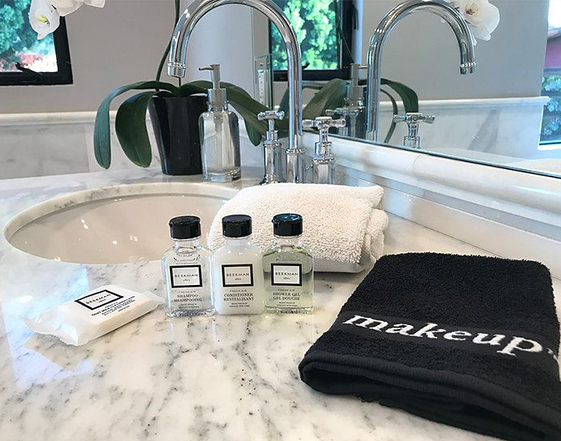Proper disposal of plastic waste remains a challenge in many countries. Awareness campaigns have been persistent to minimize the effects of plastic pollution. It is a problem in many parts of the world.
Amongst these plastic wastes are hotel toiletries which often use plastic as containers. As travelers are provided with toiletries in hotels, their disposal poses a challenge.
Surely, disposal of plastic waste has increased in most countries. Plastic waste has been a global problem, and, unfortunately, its effects are getting worse. Not only does it affect our natural ecosystems, but it also poses threats to our health.
In this article, we will know how hotels and resorts ensure the proper disposal of these toiletries. And, as travelers, we may learn how we can be taking action to curb it.
Common Toiletries That Most Hotels Provide
Today, travelers are becoming conscious of the disposal of their wastes. Unfortunately, most travelers may not have been aware of this at all.
For any hotel or resort, providing toiletries to their accommodations is expected. Here are some basic amenities and common toiletries that most hotels offer:
● Disposable toothbrush and toothpaste
● Soaps
● Shampoos
● Face and body towels
● Clean sheets and blankets
It may be easy to think of its basics, but as travelers, there is something we can do to dispose of it properly. Both hotels and travelers need to make a way to reduce the effects of plastic waste. There are simple, affordable ways that we can do to make it possible.
Proper Disposal of Toiletries in Hotels
Hotels and resorts are doing their part to reduce the waste of plastic. Some are finding ways to reduce waste. They do this by reducing paper products and using refillable containers. It has been part of their policy to mitigate the effects of plastic waste.
But know that it is important to note that these do not only apply to all hotels. And, this applies to those restaurants and bars, and other facilities that use plastic.
So, if you’ve ever stayed in a hotel, they need to keep their toiletries as new as possible. Some hotels advise their guests to leave and dispose of those refillable containers. This is how most of the hotel industries are doing to reuse plastic containers.
For this reason, hotels and resorts today provide guests with sustainable toiletries. Some of these methods include:
Reducing waste
Reducing plastic waste starts by modifying some things that hotels provide to their guests. In terms of serving meals, hotels provide dishwares and utensils instead of disposables. Other hotels have their bathrooms with a bidet whilst offering a few toilet papers. This not only elevates the standard of hospitality style but also reduces waste.
Using refillable plastic containers
Some hotels provide refillable dispensers for shampoos or liquid soaps in every room. These are refilled by the housekeeping staff and replenished for the next guests. Some hotels also provide conditioners, body lotion, alcohol, and hand sanitizer.
Dispensing the right amount of toiletries and others
Toilet papers are available in dispensers such as in restaurants, lobbies, and fitness centers. Many hotels now offer eco-friendly options for these areas as well. For example, recycled paper towels instead of cloth ones. Or, there are liquid soaps for bottles that can be refilled.
Steps We Can Do To Help Curb Waste of Hotel Toiletries
Both hotels and travelers can take part in reducing the waste of hotel toiletries. Here are some steps that we can do.
For Hotel Management
Hotels and resorts may opt to choose reusable containers, instead of single-use plastic containers. These containers can be refilled with shampoos, liquid soaps, conditioners, and alcohol. In this way, there is no need for buying new ones every time they run out.
By using refillable dispensers, it disciplines your guests to use only what they need. This is a good way to cut down on waste while controlling or reducing the overall consumption levels. This will also save time because less time will be spent refilling dispensers or stocking up on additional supplies.
Hotels should also consider providing dishwares and utensils when serving meals. Instead of using reusable cups, mugs, and utensils, they can reduce the amount of waste. Also, have a glass of water instead of water bottles. With this, your guests can use it throughout their stay at your hotel, without throwing much on their bins.
For Travelers
Check out the hotel or resort’s proper waste or recycling policies. Budget-friendly hotels may still use plastic bottles and disposable cups and cutleries. Reduce waste by disposing of these in the proper rubbish bins.
If you wish to be served with meals, consider using dishwares or utensils. If you’re going to eat a lot during your stay, it’s best to go to the cafeteria or dining area of the hotel. Otherwise, you can bring along a reusable cup and spoon so that you don’t have to use disposable cups and spoons.
Ask for fewer towels or no towels at all. Most hotels will give you one or two bath towels per guest room and provide linens for the bed. If you’d like extra towels, ask when checking in.
Minimize using paper products like tissues and napkins. You may opt to consider using the bathroom’s bidet. And if possible, you may bring along your own toiletries kit. This includes shampoo, soap, toothpaste, and other items. But, if the hotel provides you with refillable containers, please leave them in the room. The hotel staff will be the one to have this replenished with sufficient content for the next guest.
Key Takeaway
Hotel toiletries can be a major source of waste in the hospitality industry. From shampoo and conditioner to lotion and shower gel, hotels provide a wide variety of toiletries for guests.
For hotel owners, provide the right toiletries and ensure that guests are using just what they need. For travelers, take part in curbing the plastic waste by properly disposing of the containers or by using your own. It will be worth it if it means less waste for the hotel and the environment.








